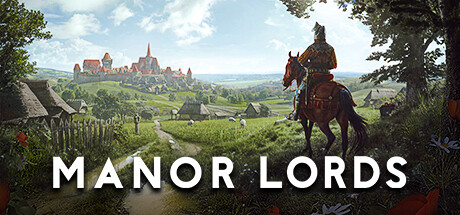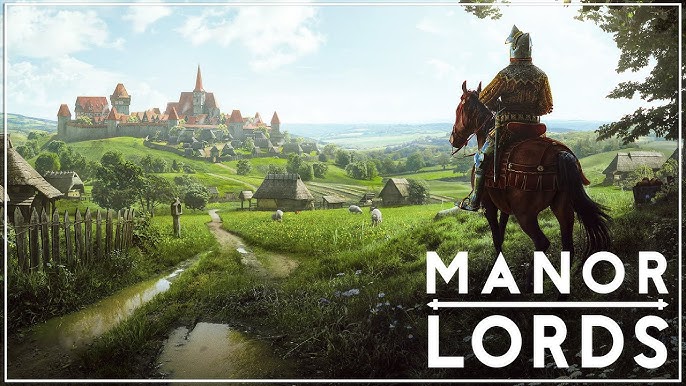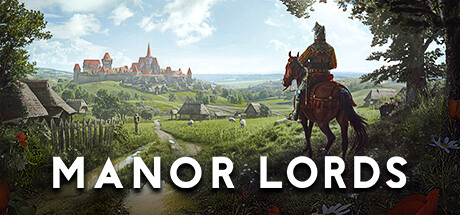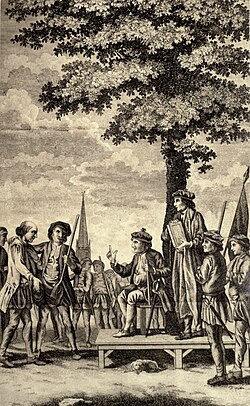From Serf to Sovereign: Mastering the Intricate Economy of Manor Lords Manor Lords isn't just another city builder; it's a medieval economic simulation wrapped in a grand strategy shell.

Manor Lords isn't just another city builder; it's a medieval economic simulation wrapped in a grand strategy shell. Forget the abstract resource tickers and simplified production chains of Cities: Skylines. Instead, Manor Lords plunges you into a world where the seasons dictate your fate, the fertility of your soil determines your harvests, and every decision, from building a blacksmith to hunting deer, has tangible and cascading consequences. In a way, the dedication to historical accuracy and player immersion echoes the best aspects of Kingdom Come: Deliverance, but instead of Henry's personal journey, you're charting the destiny of a burgeoning medieval settlement.
Let's delve into the heart of what makes Manor Lords a unique and rewarding challenge for PC gaming enthusiasts: its intricate economic systems.
The Rhythm of the Seasons: A Dance of Harvest and Hunger
Unlike many city builders where resources are perpetually available, Manor Lords grounds its gameplay in the cyclical nature of agriculture. Your success hinges on understanding and adapting to the changing seasons. Spring brings the promise of planting, summer demands tireless work in the fields, autumn is the critical harvest period, and winter tests your stockpiles and your planning.
The game meticulously simulates crop yields based on the season, weather patterns, and, crucially, soil fertility. A prolonged drought can decimate your wheat crop, forcing you to rely on alternative food sources like hunting or trade. A wet spring might lead to a bountiful berry harvest but hinder early planting. You’ll need to diversify your agricultural base, balancing fields of wheat with barley for ale, flax for linen, and vegetables for variety.
Crop rotation isn't just a suggestion; it's a necessity. Planting the same crop repeatedly will deplete the soil, leading to smaller and smaller yields. Implementing a system of fallow periods, where fields are left unplanted to recover, is vital for long-term food security. Failing to understand this can lead to devastating famines and plummeting approval, a sentiment echoed by many players. You might see comments like, "I keep running out of food in the winter even though I had a massive harvest!" This isn't a bug; it's a consequence of unsustainable farming practices.
Resource Management: From Ore to Armor, a Complex Web
The beauty of Manor Lords lies in its commitment to realistic resource management. Raw materials aren't just magically transformed into finished goods; they undergo a complex series of processes, each requiring labor, infrastructure, and careful planning.
Consider iron production: It starts with mining iron ore, transporting it to a bloomery, smelting it into iron bars, and then using those bars to craft tools, weapons, or armor in a blacksmith's workshop. Each step requires specialized buildings, skilled workers, and efficient transportation. Oxen and carts become indispensable for moving resources between production sites, and bottlenecks in your supply chain can cripple your entire economy.

Over-hunting is another trap players often fall into. Deer provide valuable meat and hides for leather, but unchecked hunting can deplete the population, leading to a leather shortage that impacts the production of clothing, boots, and armor. Sustainable hunting practices, like setting hunting limits or establishing deer preserves, are crucial for maintaining a stable economy.
Emergent Gameplay: When Systems Collide
The interconnected nature of Manor Lords' economic systems creates emergent gameplay scenarios that are both challenging and deeply rewarding. A poorly planned harvest season can lead to food shortages, causing unrest among your population. This unrest can manifest in various ways, from reduced productivity to outright rebellion.
Imagine a scenario where a surprise raid by bandits on a caravan cripples your iron supply. Suddenly, you're unable to produce the tools needed for farming, leading to decreased crop yields. This, in turn, can trigger a food shortage and a decline in your settlement's overall prosperity. This is the kind of emergent gameplay that makes Manor Lords so compelling; it's not just about building pretty villages, it's about managing a complex and dynamic ecosystem.
The official Discord and subreddit are already filled with stories of players grappling with these challenges. You see comments praising the realism of the game mechanics: "The fact that soil fertility actually matters is amazing!" and also complaints about the difficulty curve.
Modding Potential: Enhancing Historical Immersion
While Manor Lords already boasts a high level of historical accuracy, the potential for modding is immense. Imagine mods that introduce specific historical events, such as devastating famines or outbreaks of the Black Death, forcing players to adapt to unprecedented challenges.

Other mods could focus on improving the visual representation of building styles to more accurately reflect 14th-century Franconian architecture or implementing historically accurate clothing, weapons, and armor. The addition of period-specific goods and trade routes could further enhance the game's realism. The possibilities are virtually limitless, and the modding community will undoubtedly play a crucial role in shaping the future of Manor Lords.

Conclusion: A Rewarding Challenge for the Strategic Mind
Manor Lords is not a game for the faint of heart. Its intricate economic systems demand careful planning, strategic thinking, and a willingness to adapt to unforeseen circumstances. However, for PC gaming enthusiasts who crave a realistic and challenging city-building experience, Manor Lords offers a level of depth and immersion rarely seen in the genre. Embrace the seasons, manage your resources wisely, and prepare to face the consequences of your decisions. Your journey from serf to sovereign awaits. Good luck, my lords!
